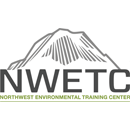03-15-2016 - Fundamental Contaminant Chemistry in Soil and Groundwater - Houston, TX
Training Provider: Northwest Environmental Training Center
Dates: TU Mar 15, WE Mar 16 from 8:30am to 4:30pm
Location: Houston, TX
 No Reviews
No Reviews
We're sorry, but registration for this event has ended
View Upcoming Fundamental Contaminant Chemistry in Soil and Groundwater In Houston, TX| TICKET TYPE | PRICE | QUANTITY |
|---|---|---|
|
One Workshop Ticket more info» | $595.00 | Registration Ended |
| Registration Ended | ||
Why Should You Take This Fundamental Contaminant Chemistry in Soil and Groundwater Course?
This two-day Fundamental Contaminant Chemistry in Soil and Groundwater course includes an overview of key chemistry concepts associated with environmental contamination and provides a foundation for understanding contaminant fate and transport. The concepts discussed are essential for understanding soil and groundwater contamination along with the selection of appropriate remediation approaches.
The course begins with a review of basic chemistry concepts that are built upon as more complex topics are introduced. The first day includes a fundamental chemistry overview, covering chemical structure, properties, and reactions for metals and organic chemicals. On the second day, characteristics of subsurface systems are discussed along with detailed descriptions of contaminant transport and degradation mechanisms.
A key goal of the class is for participants to become comfortable with the terminology and parameters used in environment chemistry and contaminant transport literature and studies. Concepts are illustrated using examples and historical context. For some examples, participants will use calculators. Spreadsheet models are provided to those interested in using simplified contaminant transport models. Major uncertainties and limitations of modeling approaches will also be discussed.
Who Should Attend This Fundamental Contaminant Chemistry in Soil and Groundwater Course?
This class is extremely useful for anyone looking to update, expand, and refresh their knowledge of environmental chemistry in relation to soil and groundwater contaminants. The course material will greatly enhance on-the-job training and is also recommended for project managers seeking a more thorough understanding of contaminant behavior. This subject matter is useful for scientists and engineers who would like to better understand contaminant fate and transport and provides a solid understanding of why certain contaminants are especially recalcitrant and difficult to remediate. This understanding will guide professionals when evaluating remedial options for contaminated sites.
Please Note: Please bring a calculator (a calculator app on a smartphone is acceptable.) Also a pen or pencil, coffee mug, and a water bottle. Drinks and snacks will be provided each day. Lunch will be on your own.
Part 1: Chemical Structure. This section covers chemical structure from atomic to molecular scale. Concepts of polarity and electronegativity are introduced and interactions between molecules are discussed. The basic rules of chemical nomenclature are also reviewed.
Part 2: Chemical Properties. Several chemical properties are introduced that are relevant to chemical fate such as solubility and partitioning coefficients. Sources of data are discussed along with uncertainties.
Part 3: Chemical Contaminants. Major contaminant groups are discussed including metals and organic compounds. The relationship between metal speciation and properties is illustrated through example. Chemical structures for organic molecules are reviewed. The interplay between structure and properties is highlighted throughout.
Part 4: Chemical Reactions. This section introduces the concepts of chemical reactions and products. Acid-base and oxidation-reduction reactions are discussed in detail. The concepts of pH and pE are explained. Dissolution and partitioning reactions are also discussed.
Part 5: Characteristics of Subsurface Systems. The purpose of this section is to understand the meaning and magnitude of subsurface parameters required by groundwater contaminant transport models. Properties of subsurface systems and their impact on chemical transport are discussed.
Part 6: Contaminant Transport. Phenomena are discussed that influence the movement and fate of dissolved phase contaminants in groundwater. The impact of advection, dispersion, sorption, and chemical reactions are discussed in an incremental fashion.
Part 7: Nonaqueous Phase Liquids. In this section, the movement and dissolution of nonaqueous phase liquids (NAPLs) is explained. Relevant fluid properties such as interfacial tension are explained. Single and multicomponent NAPLs are discussed.
Part 8: Hydrocarbons. This section discusses mixtures of hydrocarbons in more detail such as gasoline and diesel fuel. Biodegradation mechanisms are discussed along with geochemical indicators of degradation and natural attenuation.
Part 9: Chlorinated Hydrocarbons. Chlorinated compounds are discussed in more detail with a focus on chlorinated solvents such as tetrachloroethene (PCE) and trichoroethene (TCE). Degradation mechanisms are discussed along with geochemical indicators of degradation.
Part 10: Metals. Metal contamination is discussed in more detail. In particular, the influence of pH and pE on metals is further illustrated.
4888 Loop Central Drive, Houston, TX 77081
TU Mar 15, WE Mar 16 from 8:30am to 4:30pm

Northwest Environmental Training Center (NWETC) is a 501(c)(3) training organization that has provided expert environmental training for professionals since 1999. We provide certification workshops and programs nationwide that allow professionals to expand their expertise, comply with regional and national regulations, and develop their skills. Our course offerings are centered on current policy, standards, and regulations within the following subject matters: Water, Chemistry, Biology, Air, Remediation/Toxicology, Technical/Software, and Leadership & Management. Private and custom on-site training is offered by request both regionally and nationally.

Questions? 954-400-0595


